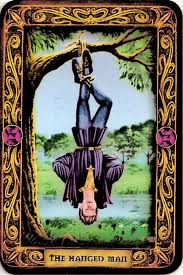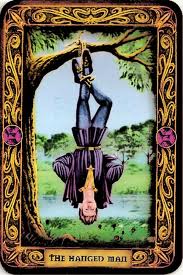 We’re at the start of the semester. Class bells ring merrily, the halls are filled with purposeful chatter and with the shuffling of feet. This is the time when we look to the new faces on campus and think, Could you be the one?
We’re at the start of the semester. Class bells ring merrily, the halls are filled with purposeful chatter and with the shuffling of feet. This is the time when we look to the new faces on campus and think, Could you be the one?
For professors, that question is not one of romantic entanglement. We want you to major in Writing & Linguistics, and on this side of the camp, we actually want you to concentrate on creative writing.
But why major in Creative Writing, you say? Your parents are tapping their foot and checking their account balances on their smart phones, whispering a sing-songy Juniooooor? hoping you don’t get lured in by those strange bohemian types, the creative writers, who surely will lead you to economic perdition making you major in telling stories and teaching you to chant poetry at dark gatherings, where only people with poor fashion sense understand the real meaning of your words.
Mostly, they’re just worried that a degree in creative writing won’t get you a job — and why shouldn’t they worry? Poverty gets old really fast. And they (and you) are probably already re-mortgaging a house to fund your ride through higher education. It wouldn’t be wise for you to come out of college without a crushing debt and no opportunities to pay it off.
True, that.
That’s why our colleagues teamed together with our other colleagues, and that’s why at Georgia Southern we offer a Writing & Linguistics major and not a Creative Writing major. We know how it looks to some people, that word, Creative. It’s like saying Laziness or Procrastination — or worse: Welfare Check and Unemployment.
We understand what it’s like being young and full of debt, and so we designed our curriculum with plenty of “practical” courses that will open doors to a number of financial opportunities. Our friends in technical writing take a special front seat to this goal: technical writing skills are very much in demand, and considering where our technology is going, that job growth is only going to get better. But our friends in Linguistics and in Writing Studies offer a number of good opportunities as well.
So, ok, now that we’ve taken care of that, what, you ask, is so special about creative writing? Why not just focus all my courses in Technical Writing or Linguistics, or — even better — Accounting!
Well, I say, it’s precisely because you want a career with a future, not just a job, that you should be taking a walk on the wild side.
It might surprise you to learn that in this technology-run, result-driven economy the highest commodity is not productivity, but creativity. That’s right, that terribly frightening word. Many of the more promising corporate entities understand that quite well, thus articles like “The MFA Is The New MBA” and “Let Computers Compute: It’s The Age of The Right Brain” telling the world what creative writers have always known, that learning to look at the world upside down is the most valuable of skills for any ambitious boy or girl. (You were wondering about that Tarot card image, weren’t you?)
Let me give you some specific examples of why the creative life has practical resonance with the type of creative skills that employers are looking for.
Here is a list of the most common terms found in job ads for almost any position:
1. Effective Communication Skills: it’s a no-brainer that creative writing teaches you to communicate. “But not THAT kind of communication” says you. “We’re talking about memos, and reports, journal articles, blogs, and slide shows, not stories, not poems.” And I say, “Everything is a story, my dear.” And to quote my good friend Holmes of the UK telly show: “You see, but you don’t observe.” To make my point let me just refer you to the most successful and charismatic CEO of all history, with more than 2 billion followers in this present day society, Jesus taught and won audiences over almost exclusively through stories. So did pretty much any other prophet from any of the greatest world religions of all time. That’s because all of them knew the power of story to tell a truth that is larger than the mere facts. Reducing communication to a succinct assemblage of facts is to “see but not observe,” Watson. Even Aristotle taught about the power of mythos to rally and unite a people. We don’t give presidential acceptance speeches because we want to inform: next time you’re in the vicinity of a speech transcript, observe the stories. I suspect you will find more than one.
It’s not easy to tell a good story, nor to express a complex, esoteric idea in simple terms that everyone can understand and relate to: and this is exactly what creative writing teaches you to do. That’s why the works of poets and writers survive over centuries, sometimes millennia: because those works are the most informative about a culture, about its philosophy, its social dynamics and economic challenges. We do it best. And once you learn that challenging-but-ostensibly-simple type of writing, any other type of writing will feel like a walk in the park.
2. Problem Solving Skills: creative writers don’t just solve problems all the time, they also routinely construct “worse case scenarios” as a matter of course. The CIA and FBI and Department of Defense really should hire writers to tell them just what could happen — and for all I know, they already do. Let the analysts to the number crunching. We have exactly those types of minds that defense entities desire: we look past the obvious and hone in on the intriguingly subtle. Poets are code makers and code breakers; prose writers construct and deconstruct narratives. That’s why so many lawyers and detectives write best selling novels. They are creative, and therefore they have the minds to think in unusual ways, considering and analyzing what others see but don’t observe.
3. Attention To Detail: this is an easy one. Just ask any poet. What difference does a comma make to the interpretation of a line? What about the right choice of diction? Practice makes perfect and creative writers train themselves every day, every hour of their labor, to look at the details, and to consider how these work together to transform the whole.
4. People Skills: many of my best writing teachers said “to be a better writer be a better person.” Poets and writers are doctors of the human heart. We understand how people act in any circumstance and situation, and we are able to articulate better than anyone what are most secret motivations and desires are, and how they trigger our emotions.
5. Analytical Skills: would you be surprised to know that writing resides in the left brain, the analytical side of our thinking machine? While writers of any kind will exercise your abilities to organize and deconstruct, (just think grammar), creative writers make use of both sides of the brain, delving into the wild and unexpected while also organizing and structuring the chaotic subconscious. You can’t get any better training than that.
There is more that I could say, but this is turning into a long post, and I can practically see you twitching my dear Watson, urging to move on to another blog post or to some snappy FB status.
But as you ponder the purpose of your college days, remember that college isn’t a place where you learn skills for jobs that already exist. It’s a place that, when navigated properly, will teach you skills for jobs that will exist in the future, and even jobs that you can create yourself. All you need is a pinch of right brain and a pinch of left brain that together form that dreaded phrase: Creative Writing.
Could you be the one?
Related articles
- The Biology of Writing (Or Not Writing) Creatively (lauravaleri.com)
- Top 10 Sources of Inspiration for Creative Writing (lifehack.org)

